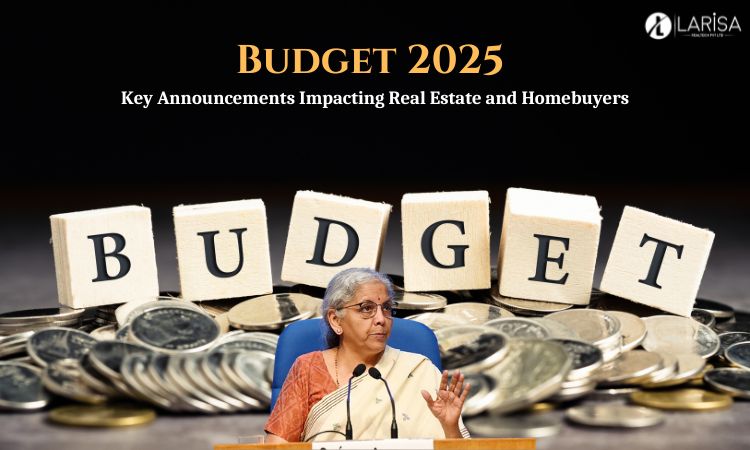
Today, we tell about Types of Real Estate, because Real estate investment is one of the most proven ways to generate wealth and earn profits worldwide. There are different types of real Estate in India; people invest in different ways in real Estate.
The great thing about putting your money into real Estate is that you do not need to wait for the right time to bring profit as you always have the choice of renting it out. Most inexperienced people in this field know how to generate active and passive income from their property investment.
What they don’t know is how many types of real Estate exist. Experts suggest that each type of real estate investment has its own benefits, potentials, price and pitfalls.
So, there is no safest or most beneficial avenue for investment; it all depends on the market situation when you invest in any type of real Estate.
In this article, we’ll help make real Estate investing less complicated by discussing what real Estate is, the types of real estate investment, the real estate industry, Real Estate Investment, and the carrier in real Estate.
Let’s know about the different types of real Estate in India.
Real Estate Meaning?
Real estate defined as the land and any permanent structures, like a home or improvements attached to the land, whether natural or artificial.
A real estate is a form of real property. It differs from personal property, which is not permanently attached to the land, such as jewellery, boats, furniture, and farm equipment.
Real estate property that consists of improvement and land, which include buildings, roads, utility systems, structures, and fixtures. Real estate gives rights a title of ownership to the modifications, land and natural resources such as plants, animals, minerals, water, etc.
Here is the Types of Real Estate
1. Residential Real Estate
Residential real estate consists of houses for families, individuals or groups. Most people are familiar with this most common type of real estate asset class. There are single-family homes, condominiums, apartments, townhouses, and other living arrangements within residential real estate.
Single-family, multi-family, apartments, villas and townships come under this category. From investment point of view, each of these options can be different. For example, the prices of luxury villas and independent houses increase according to time because of the land’s rising value and the building’s longevity.
Residential Properties can be a good option for investment purposes, but make sure about the condition of the market before investing. In some cases, prices fluctuate wildly, and a higher property price can give less return on investment.
2. Commercial Real Estate
Commercial Real estate is the most demandable sector among the types of real estate. In commercial real estate, restaurants, shopping centers, schools, hospitals, and office spaces are some examples of commercial real estate properties that we’re probably familiar with.
Investing in commercial properties is more expensive than residential properties, but the chances of profit generation are also better than in residential real estate.
Commercial property considered land and buildings used by businesses to carry out their operations and mainly for investment.
However, it might be challenging to choose the right property for investment if you are a newbie investor in the real estate field. To remain safe, you must follow the guidance of a real estate investor.
Arranging for a down payment is another concern in this type of investment because most banks in India provide about 50% to 70% of the cost as loans.
Also, unlike a housing loan, one taken for a commercial investment requires a mortgage for a loan. Sometimes it isn’t easy to take loans from banks.

3. Industrial Real Estate
Industrial real estate is the most popular among the types of real estate. In this sector, land generally uses for business purposes. Buildings and factories used for manufacturing goods and warehousing are industrial Real estate.
This industry is usually located far from the city to avoid the citizens getting affected by their pollutants. Industrial Real Estate includes factories, power plants, mines, also oil fields etc.
Investing in these properties might be tricky as it’s difficult to estimate the capital investment in this field. While the property may have been recently converted from farm terrain to an industrial facility, the cost is likely higher than nearby farmlands.
Renting an industrial property could be challenging because the tenant’s needs could fluctuate frequently. Compliance with the rules and regulations issued to factories in India is another cause for concern.
Examples – including Google and Facebook Data Server centers, Tesla Factory in California and Refrigerated Storage Facilities.
4. Investment In Land
Some people buy raw Land or vacant Land for future investment. Investment in Land is one of the least expensive and most secure in real estate. When you buy a piece of Land or ground for investment, you do not need worry about damage, theft and maintenance, which is, of course, a good thing.
At the same time, generating massive income from investment in Land requires some out-of-the-box ideas, which might not work. Because sometimes it does not give you a good return on investment.
Raw Land, also known as vacant Land, does not have any structure or improvement. Vacant Land is an undeveloped property that offers more flexibility when used.
However, still, it’s good to invest in Land because it could pay a massive amount in the future.
However, there is a disadvantage in land investment, too, that is loans will be charged at more interest rates than a home loan. Moreover, you do not save any taxes on repayment of the principal amount.
Overview of Real Estate Industry
In India, the Real Estate Industry is the second highest employment generator after agriculture. This Sector offers many jobs and careers opportunities. The Real estate Industry can be divided into different parts.
- Developments
- Sales and Marketing
- Lending
- Brokerage
- Professional Services
- Property Management
Types of Real Estate Industry
1. Developments
Development is the process that involves the purchase of raw land, rezoning, renovation and construction of buildings, and sale or lease of the finished product to the buyers. Developers profit by adding value to the land and taking the risk of financing a project. Development groups create a new product, which can be considered the primary market or generation of new inventory.
2. Brokerage
In Real Estate Industry a brokerage is a firm that employs a team of real estate agents who help facilitate transaction between the buyers and sellers of the property. A brokerage always fascinates to sell the property to the buyers at the best cost.
3. Property Management
In this sector, Property Management is a part in which they help real estate owners to rent their units in the building. Collecting rent, performing repairs, showing units, fixing deficiencies, and managing tenants are their jobs. Generally, they charge a fee, or percentage of the rent, to the property owners
4. Sales and Marketing
Under sales and marketing a group of team works with the building developers to sell the units or building they built or create. This group mainly focusses on new units. On selling the units these firm earn commission or percentage according to type of real estate.
5. Professional Services
In the real estate industry, some professionals are directly engaged in this field, like lawyers, interior designers, Architecture, Engineers, accountants, general contractors, stagers, tradespeople, and construction workers. Due to real estate professionals who work in this industry and make it function.
6. Lending in Real Estate
Lenders include credit unions, government institutions, private lenders, and banks. In the Real Estate Industry, lenders play an essential role as virtually all properties and developments use leverage or debt to finance their projects.
Careers in Real Estate or Jobs in Real Estate
If you are looking for a career opportunity in Real Estate, you may look at the above in any Real estate.
This is the list of career options or jobs in the Real Estate Industry:
- Director of the Real estate: This is a corporate job; a director of real estate oversees the investment of new real estate for big companies and corporate organization
- Agent: A Sales agent. An agent helps rent, sell, and manage their owners ‘owners’ homes, land, and building.
- Commercial Brokers: These brokers are professionals who assist clients in selling, buying, or leasing properties for commercial purposes.
- Building Inspector: A building inspector who check or examine the quality of the building and works with appraisers. It visits construction sites to ensure all local and National building codes and regulations are followed.
- Real estate Attorney: A lawyer specializing in Real estate and advises their clients on different property matters.
- Appraiser: An appraisers provide an estimated value for a property before it is, mortgaged, developed, taxed, sold, and insured. They verify legal descriptions in public records and inspect new and existing properties, noting their characteristics.
- Loan Underwriter: A loan underwriter is responsible for deciding whether a borrower’s loan application is approved or not. Suppose any buyer applies for a loan from insurance, mortgage, loan broker, or any other financial institution. In that case, an Underwriter evaluates the risk presented by the entire loan application.
- Mortgage Specialist: A mortgage specialist, a loan officer, helps buyers find the right finance for homes and properties.
- Analyst: A carrier in Real estate as analysts provide financial analysis to support the acquisition, financing, marketing, and leasing of any type of real estate. An analyst provides expert advice to real estate companies and other firms and buyers based on economic conditions, financial situations, and market trends.
Real Estate Investment
When we think about investing in real estate, the first thing that probably comes to mind is your home. Real estate investors have many other options when choosing investments in any type of Real estate, and they’re not all physical properties.
Over the last 40 years, investment in different real estate industry types has boomed.
Here’s a look at some of the best options to invest in Real Estate.
1. Real Estate Investment Groups (REITs)
Real estate investment groups are one of the best options for investment in real estate; it is ideal for those people who want to have a rental real estate property without the hassles of running it. Investing in REITs requires a significant capital cushion and access to financing.
REITs is just like investing in mutual funds that involves invest in rental properties. In a real estate investment group, a company buys and builds a set of apartment blocks or condos, then allows investors to purchase them through the company, thereby joining the group.
Some standard real estate investment group is contracted in the investor’s name, and all of the units pool a portion of the rent to guard against occasional vacancies. You will receive some income even if your team is work. The vacancy rate for the units does not spike too high, there should be enough to cover costs.
2. Real Estate Investment Trusts
Real estate investment trust is best for investors who want to invest in financial investments like stocks, bonds, commodities, cash, and exchange-traded funds exposure to real estate without a traditional real estate planning.
A REIT is created when a corporation and trust uses investors’ money to purchase and operate income properties. Real Estate Investment Trusts are bought and sold on major exchanges, like any other stock.
A corporation must pay 90% of its profitable taxes as a dividend to maintain its status as a REIT. It is the best investment for stock market investors who desire regular income.
REITs are highly liquid because this is an exchange-traded trust. In other ways, you do not need a real estate agent or title transfer to help you cash out your investment.
3. Rental Properties
Rental Properties refer to when an investor purchased a home for investment on a lease or rental agreement. Owning rental properties can be an excellent opportunity for individuals with do-it-yourself renovation skills and the patience to manage residents. However, this strategy does require substantial capital to finance upfront maintenance costs and to cover vacant months when no rent is coming.
4. House Flipping
House flipping is for those people with significant experience in real estate, marketing, and renovation. This House flipping requires considerable capital and the ability to do or oversee repairs as needed.
Generally, property flippers do not invest in improving properties. Therefore, the investment must already have the intrinsic value needed to turn a profit without any alterations, or they’ll eliminate the property from disagreement.
Flippers unable to swiftly unload a property may find themselves in trouble because they typically don’t keep enough cash on hand to pay the mortgage on a property over a long period.
5. Online Real Estate Platforms
Real estate investing platforms are also for those who want to join others in investing in more prominent commercial and residential properties. Online real estate platforms support, also called real estate crowdfunding. This still requires significant capital investment, although less than needed to purchase properties outright.
Online platforms connect many investors looking to finance projects with real estate developers. In some cases, you can expand their investments with not much money. It combines different real estate investors on a single network, where they can invest in various real estate types.

Conclusion
I hope you read our blog and all your doubts about what real estate is, types of real estate, careers in real estate, an overview of real estate, and also investment in real estate have been resolved.
If you find this blog knowledgeable, then please share it with your family and friends so they also get some valuable knowledge.
Thankyou
Related Post –
Best Luxury Low Rise Floors in Gurgaon 2022-2023
Why we should invest in Real Estate in Gurgaon?
Frequently Asked Questions
1. What is the most common type of Real estate?
Residential real estate is most common type of real estate with new and experienced investors.
2. What are Real estate’s examples?
Land, Office, homes, shopping center, hospitals and farms are the examples of real estate.
3. Is Real Estate Crowdfunding Risky?
Yes real estate crowdfunding is somewhere risky because it is relatively new.
4. What is Direct Real estate investing?
In Direct real estate investments it involves owning and managing properties.
5. What is Indirect Real estate investing?
In this investment real estate involves investing in pooled vehicles that own and manage properties, such as REITs and real estate crowdfunding.
6. What is commercial Real estate?
Commercial properties are those which is use for business purposes rather than living, like offices, rentals and retails.
7. Is real estate a good investment?
Yes, Real Estate is a good investment. It rated best long-term investment.
8. What are the 5 advantages of real estate investment?
Stable Cash Flow, tax advantages, leverage, passive income and diversification are advantages of real estate investment.
9. Is real estate better than stock Market?
Real estate has higher risk returns than the stock market. It is best for investment purpose.
10. What are the disadvantages of real estate?
High vacancies, problem tenants, negative cash flow and bad locations are some disadvantages of real estate.



